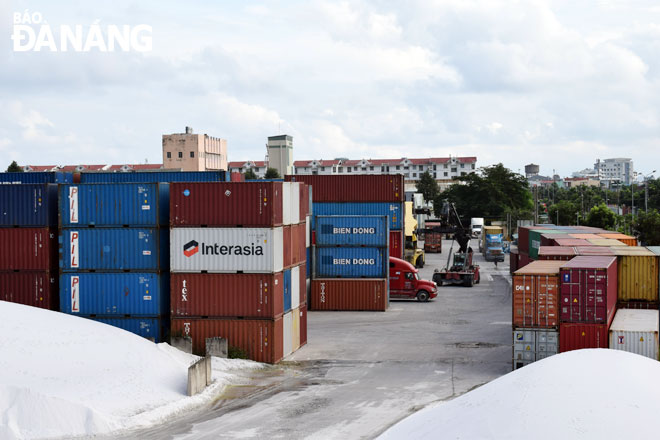City faces human resource shortage in logistics industry
In recent years, Da Nang has recorded strong growth of the logistics industry with hundreds of logistics businesses maintaining their stable operation in the city. However, training human resources for this industry has not been given enough attention.
 |
| Special attention should be paid to developing human resources for the logistics sector in order to further the development of the logistics industry |
Currently, Da Nang, and Viet Nam as a whole, is facing a severe shortage of qualified staff working in logistics industry.
Meanwhile, university graduates have yet to meet the requirements of recruiters because they lack of comprehensive knowledge and English language proficiency, as well as their levels of information technology are still limited.
In addition, they have yet to keep up with the latest in the development of global logistics industry.
Mr Tran Phuoc Hong, General Director of the Da Nang Logistics Company (Danalog), said universities in Da Nang have not yet provided specialised training courses on the logistics industry. Therefore, most of his company’s employees have been recruited from other localities or from other fields, and they have been then retrained by his company.
In fact, students trained about logistics or qualified logistics employees often prioritise to working in cities boasting stronger logistics activities than Da Nang such as Hai Phong and Ho Chi Minh City.
Mrs Dang Tran Gia Thoai, Director of the Container Mien Trung JSC (Viconship Mien Trung), said due to the serious lack of qualified employees, many logistics businesses have to attract qualified staff from other companies by offering more attractive salaries.
She, therefore, suggested that local universities should cooperate with logistics businesses to train their students to meet the growing demand for employees from the local logistics sector in an effort to solve the problem.